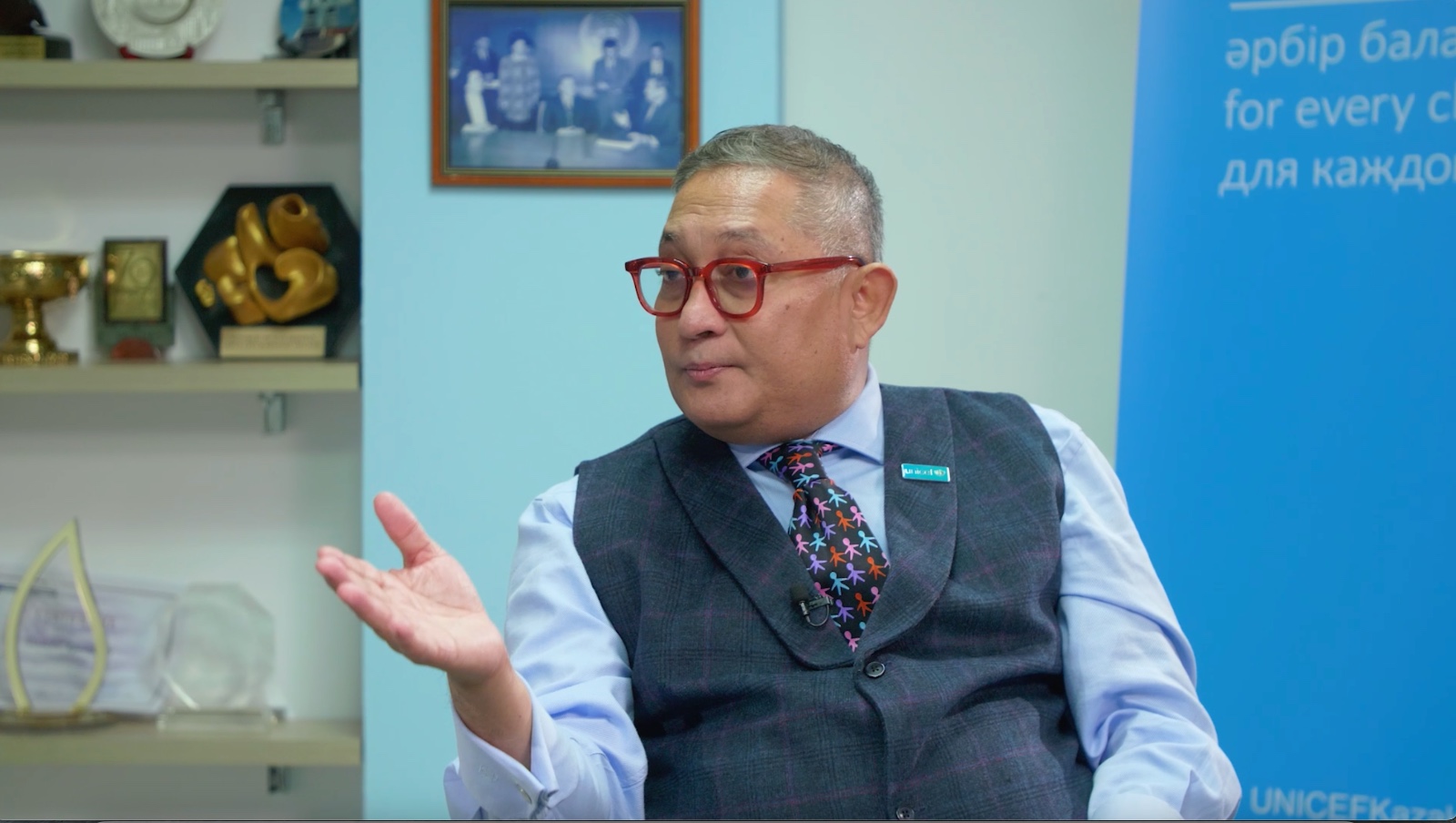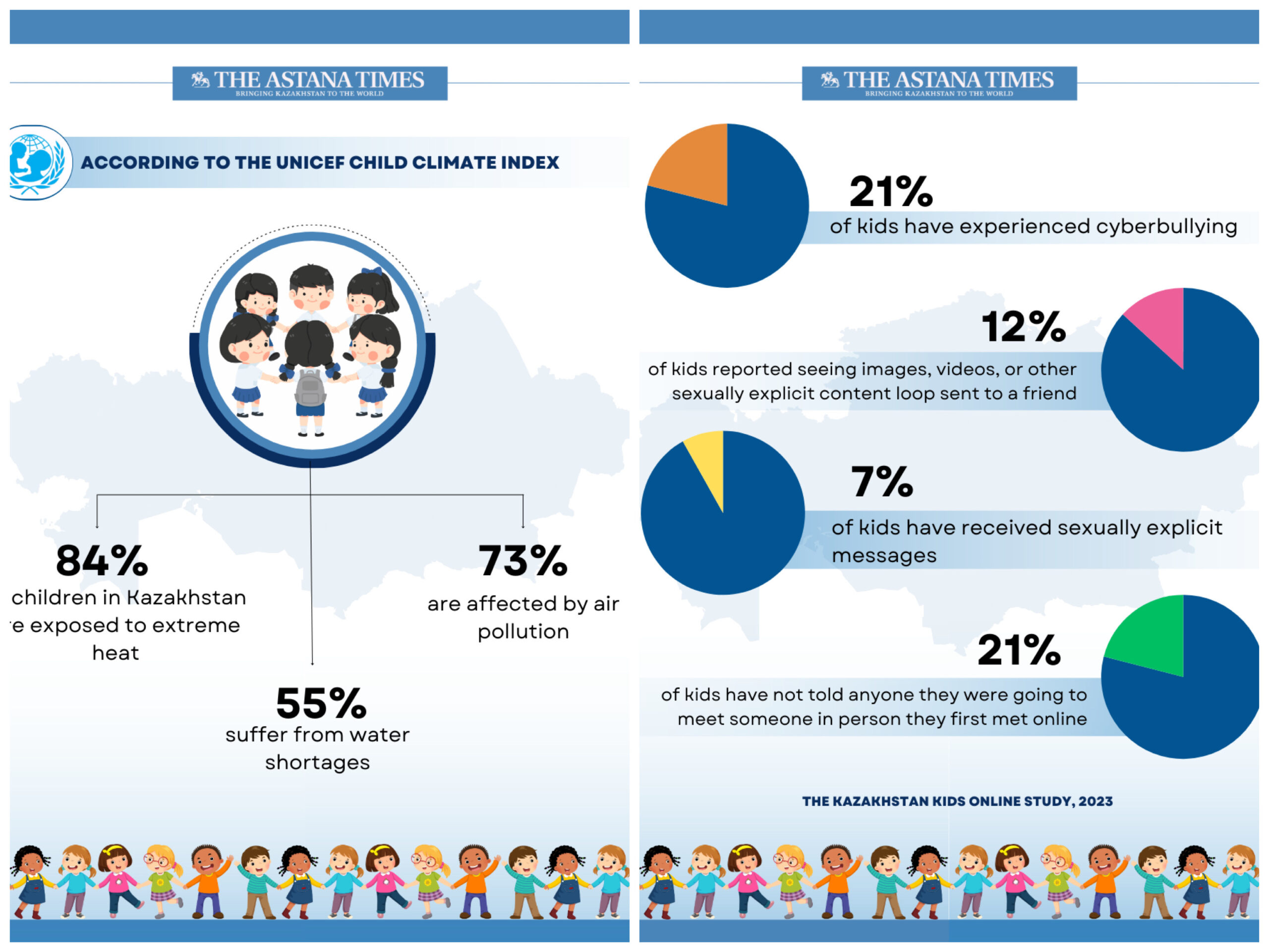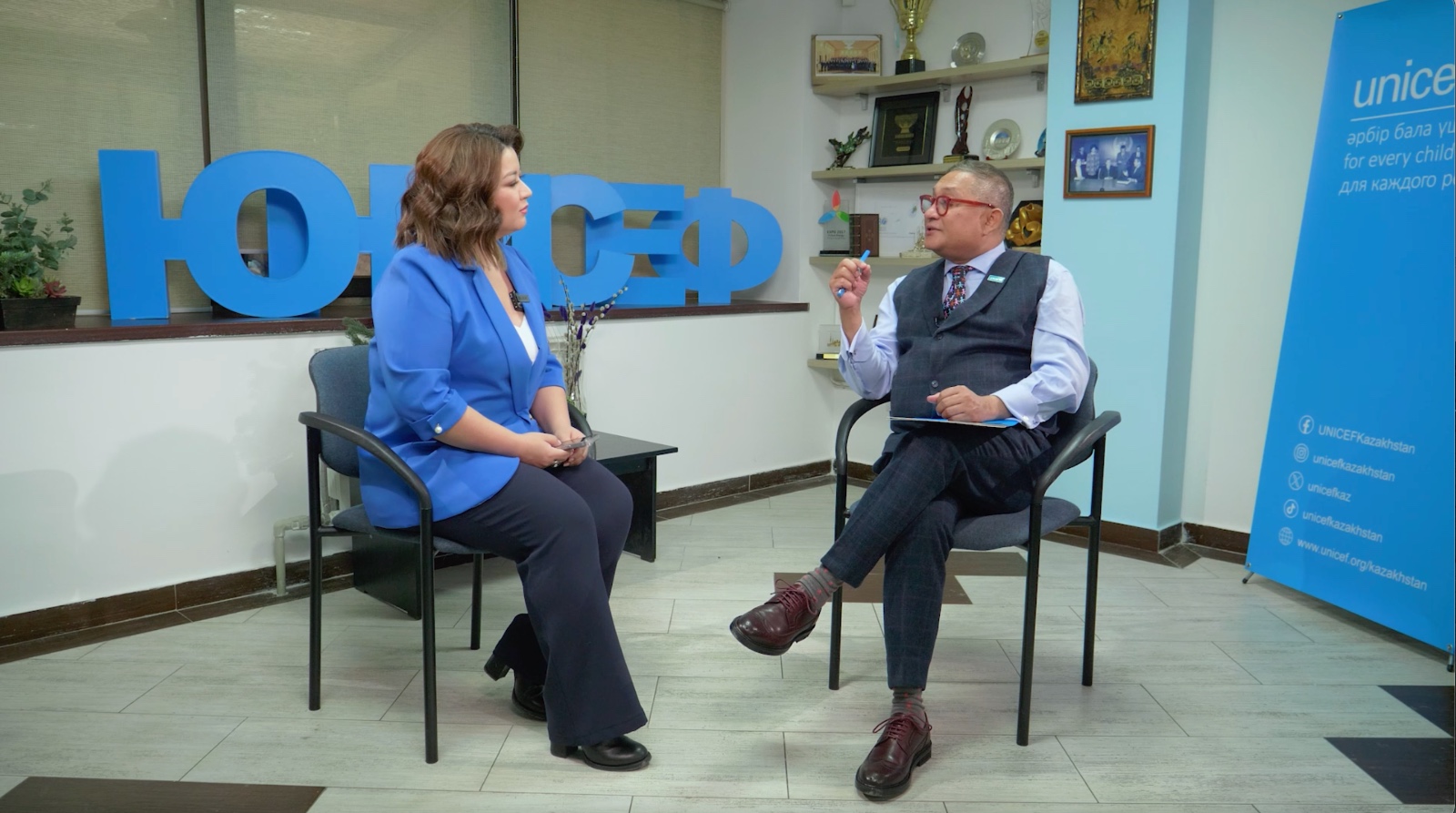ASTANA —Kazakhstan and UNICEF have achieved significant milestones in their 30-year partnership. However, new challenges, including climate change and cyberbullying, pose emerging threats to children’s safety and mental health. Together, both parties are working to address these pressing issues.

Dr. Rashed Mustafa Sarwar, UNICEF Representative in Kazakhstan. Photo credit: The Astana Times
In an interview with The Astana Times YouTube channel, Dr. Rashed Mustafa Sarwar, UNICEF Representative in Kazakhstan, highlighted the country’s notable progress in improving children’s well-being. These advancements include reduced child mortality and expanded access to education, social services, and immunization.
“Kazakhstan has made great progress, though ‘great’ is always a relative term. The country still faces challenges that are multidimensional,” he said.
Geographical challenges in providing services
Dr. Sarwar emphasized that Kazakhstan’s vast size and diverse communities create significant hurdles in ensuring quality services for every child.
“Kazakhstan is the ninth-largest country in the world, with a very diverse population. The first challenge is geographical—providing quality and accurate services to every child. For the government, it’s a challenge to extend services to every corner of the country,” he explained.
Addressing the impact of climate change
Another pressing issue Dr. Sarwar raised is the irreversible impact of climate change.
“I’m pleased to see that Kazakhstan is taking climate change seriously. It’s widely acknowledged that it’s damaging the country, and children suffer much more than adults,” he said.

According to the UNICEF Child Climate Index, 84% of children in Kazakhstan are exposed to extreme heat, 55% experience water shortages, and 73% face air pollution. He also cited the devastating floods in spring 2024, which disrupted education for thousands of children.
Tackling cybersecurity and online safety
Dr. Sarwar stressed that the challenges children face today differ significantly from those of three decades ago.
“Three decades ago, UNICEF worked hand-in-hand with the government to provide basic services. Today, a major challenge is online safety. The internet is a huge resource for learning, but it also poses risks,” he said.
He discussed findings from the 2023 Kazakhstan Kids Online study conducted with the Ministry of Education, which examined children’s digital experiences. The study revealed that 21% of children have experienced cyberbullying, 12% reported seeing explicit content shared among friends, 7% received sexually explicit messages, and 21% did not inform anyone when meeting someone they initially encountered online.
“These challenges are closely tied to children’s mental health, educational outcomes, and social development. Mental health is a global epidemic, and unfortunately, Kazakhstan is among the top countries affected, particularly among adolescents aged 13 to 17,” he said.
Investing in long-term solutions for Kazakhstan’s children
Dr. Sarwar commended the Kazakh government for recognizing the challenges mentioned above and working with UNICEF to address them.
“We are collaborating with various government ministries, the Deputy Prime Minister’s Office, and other partners. These challenges can’t be solved overnight, but we must act because children are the human capital of the country,” he said.

UNICEF Representative in Kazakhstan, Dr. Rashed Mustafa Sarwar spoke to The Astana Times correspondent Aida Haidar. Photo credit: The Astana Times
UNICEF also focuses on engaging both corporations and individuals in its initiatives. Dr. Sarwar highlighted the importance of deepening a culture of giving, which has already had its place in Kazakhstan.
“Traditionally, Kazakhstan has a generous culture of donation. We want to grow that culture further so people contribute to their country’s child development. We’ve seen Kazakh people contribute to global calls for Gaza and Lebanon, and we believe they will support local causes too,” he said.
He also outlined a shift towards long-term, sustainable programs, such as initiatives supporting children with special educational needs.
“We need to invest in programs that take longer to show results but have a lasting impact. For example, supporting 2,000 children with special needs won’t yield immediate outcomes, but it will contribute to society in the long term,” he explained.
Lessons from global humanitarian efforts
Drawing on his experience assisting Ukrainian children in Poland as part of UNICEF’s refugee response, Dr. Sarwar emphasized the importance of working with local authorities to address immediate needs.
“When we started, there were 3.6 million Ukrainians in Poland. The solidarity shown by the Polish people and government was incredible. We invested in local authorities and supported them financially and technically so children had access to schools, health facilities, and psychological counseling,” he said.
He added that addressing issues at the local level often brings faster results.
“We learned to follow the issues where they are. While central government support is essential, local authorities make a significant difference. In Kazakhstan, we need to ensure that both big cities and smaller towns are equally developed to meet children’s needs,” he said.
Despite the challenges, UNICEF remains optimistic about Kazakhstan’s potential to address emerging threats to children’s well-being. Dr. Sarwar and his team are committed to collaborating with the government, local authorities, and individuals to ensure that every child has the opportunity to thrive.
“The challenges are immense, but we must save our children because they are the future of this country,” he concluded.
For full conversation, please watch the interview on The Astana Times YouTube channel.
